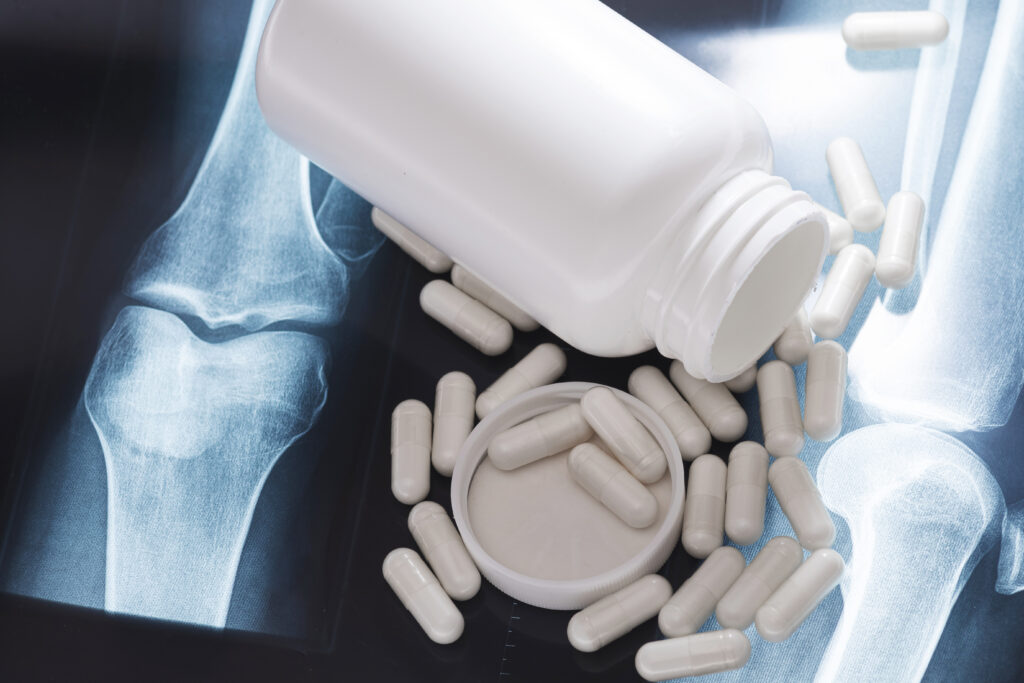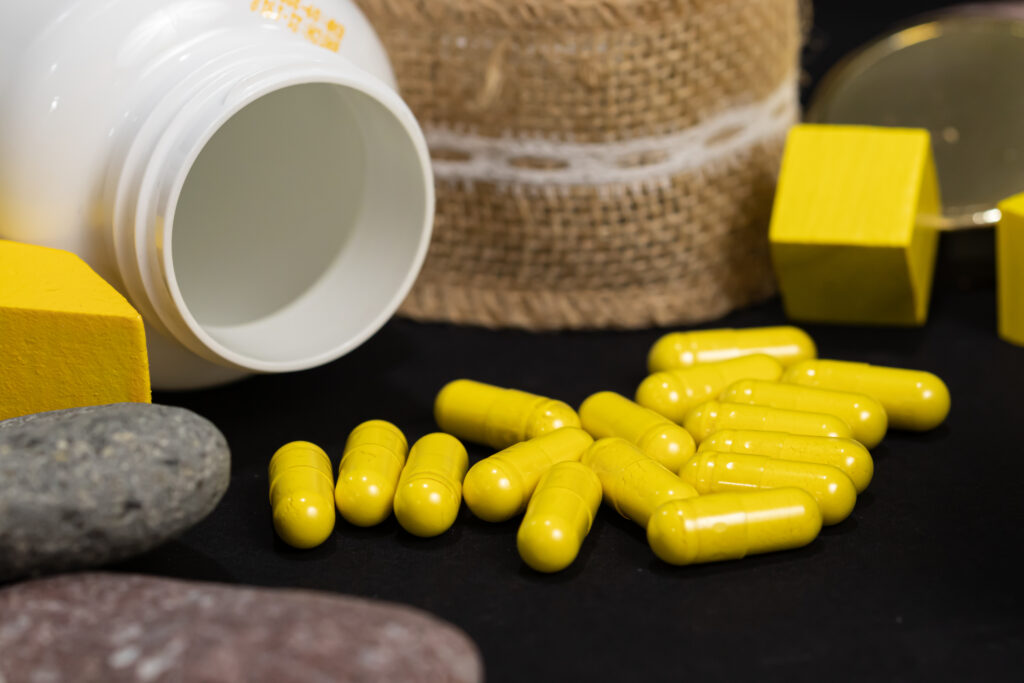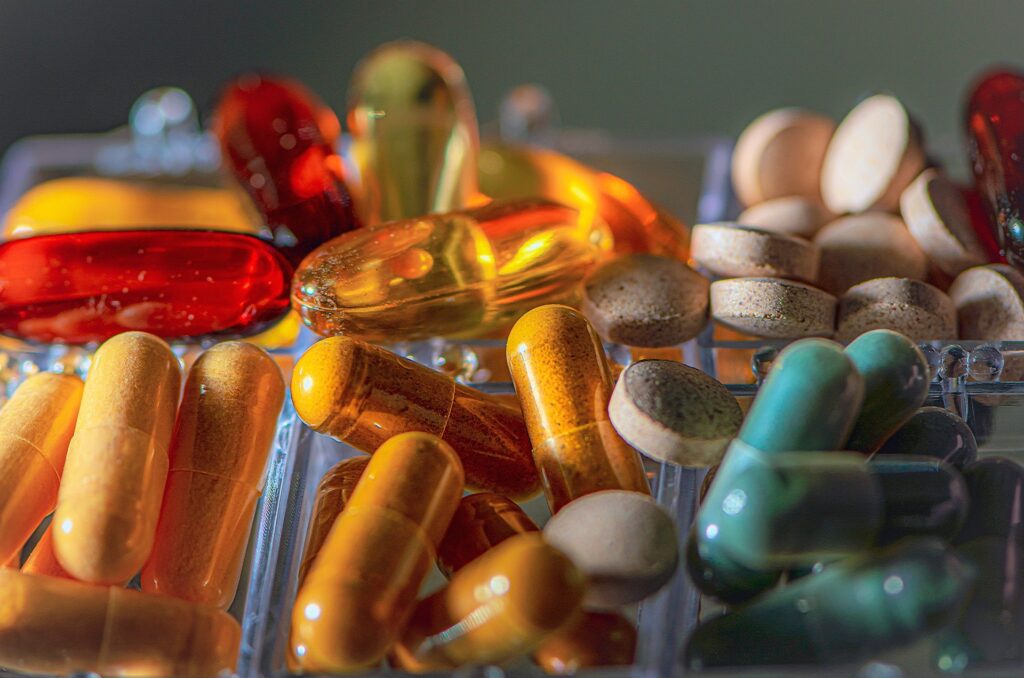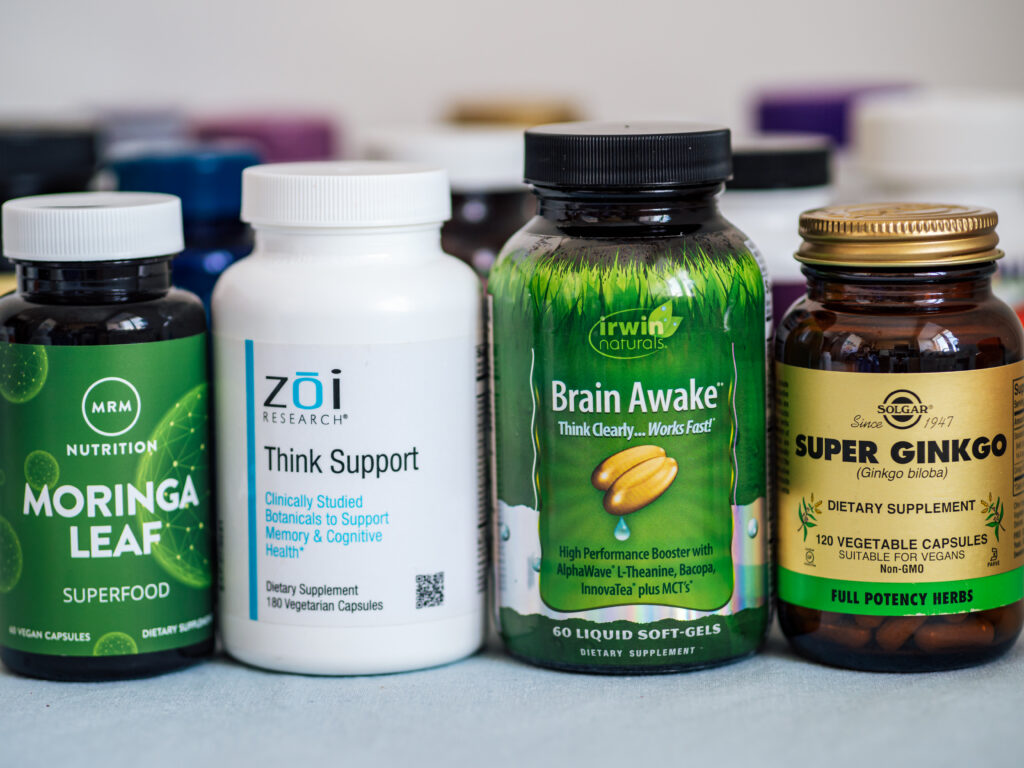Being pregnant is a wonderful adventure that is full of hope and excitement, but it also entails certain responsibilities for the mother’s and the developing baby’s health and wellbeing. Even while eating a balanced diet is important during pregnancy, it can be difficult to get all the nutrients you need from food alone. That’s where the importance of vitamins comes in. We’ll explore the key supplements suggested for a healthy pregnancy in this extensive guide, along with their advantages, suggested dosages, and any possible side effects.

Iron: Iron is necessary for the synthesis of hemoglobin, which supplies oxygen to all of the body’s cells, including those of the developing baby and the placenta. Due to the body’s increased need for iron, pregnant women are more likely to experience an iron shortage.
The suggested daily dosage is 27 mg.
Food sources include leafy greens, lean meats, chicken, fish, beans, lentils, and fortified cereals.
Risk: Iron supplements may make you feel queasy and constipated. It’s important to heed the advice of your healthcare provider because taking too much iron might be hazardous.

Calcium: A baby’s development of strong bones and teeth depends on calcium. Because the unborn child gets its calcium from the mother’s bones, pregnant women who don’t get enough calcium in their diet may jeopardize their own bone health.
Dosage recommendations for women aged 19 to 50 are 1,000 mg daily.
Food sources include leafy greens, tofu, almonds, dairy products, and fortified plant milk.
Risk: Taking too much calcium supplements may prevent other nutrients like iron and zinc from being absorbed properly.

Vitamin D: An essential component of healthy bones, vitamin D is required for the body to absorb calcium. Additionally, it boosts immunity and may lower the chance of developing preeclampsia and other pregnancy-related problems.
600 IU (International Units) per day is the suggested dosage.
Food sources include eggs, sunshine, fortified dairy and plant-based milk, fatty fish (salmon, mackerel), and eggs.
Risk: Excessive vitamin D can cause toxicity, which can manifest as weakness, nausea, vomiting, and kidney issues.

Omega-3 Fatty Acids: The development of the baby’s brain and eyes depends on omega-3 fatty acids, especially EPA (eicosatetraenoic acid) and DHA (docosahexaenoic acid).
DHA dose recommendation: 200 mg or more daily.
Food sources include walnuts, flaxseeds, chia seeds, and fatty fish (salmon, trout, and sardines).
Risk: High concentrations of mercury in some fish-based omega-3 fatty acid sources may be detrimental to the developing neurological system of the fetus. Selecting low-mercury products is crucial, as is speaking with a doctor about safe supplementation.

The suggested daily dosage is 220 mcg.
Seafood, dairy, iodized salt, and seaweed are examples of food sources.
Risk: It’s important to follow the appropriate amount of iodine because too much of it can be hazardous.

Suggested dosage: Adhere to the directions on the product label or as instructed by a medical professional.
Benefits: Prenatal multivitamins usually include greater dosages of folic acid, iron, and other nutrients essential for fetal growth. They also usually contain a combination of vitamins and minerals specifically designed to fulfill the needs of pregnant women.

It’s critical for the mother’s and the unborn child’s health and wellbeing to maintain adequate nutrition during pregnancy. Although the main source of nutrition should be a balanced diet, supplements can assist close any gaps and guarantee that important vitamins and minerals are taken in sufficient amounts. Before beginning any supplement regimen, it’s imperative to speak with a healthcare professional because everyone has different needs and some supplements may interfere with medications or be dangerous if taken in excess. A healthy lifestyle coupled with the appropriate supplementation can help women sustain a successful pregnancy and provide the best start in life for their unborn child.


